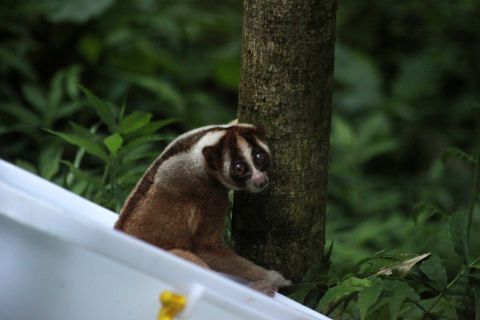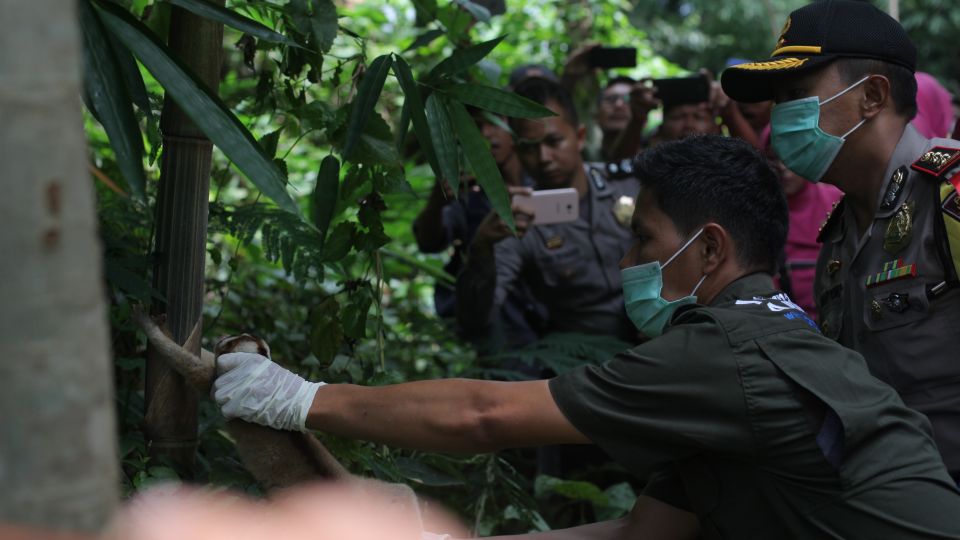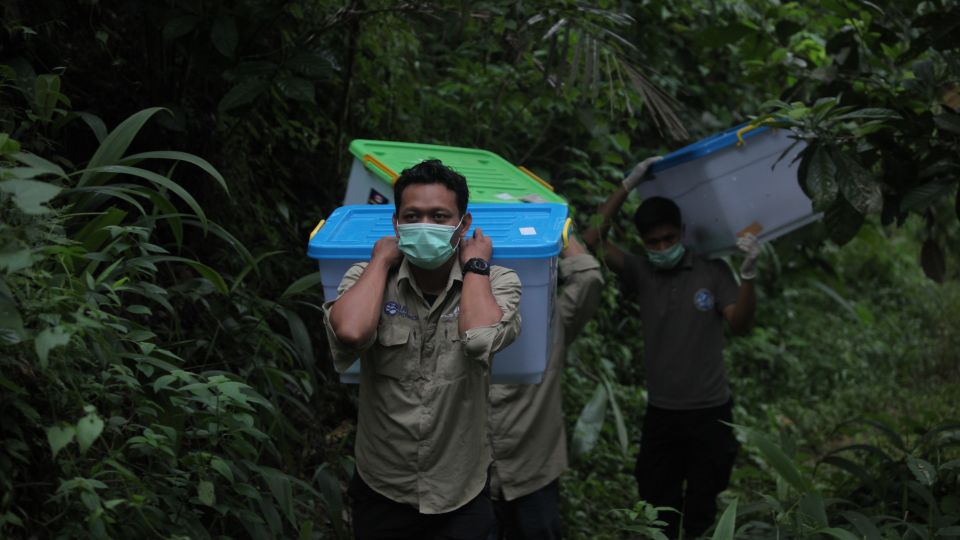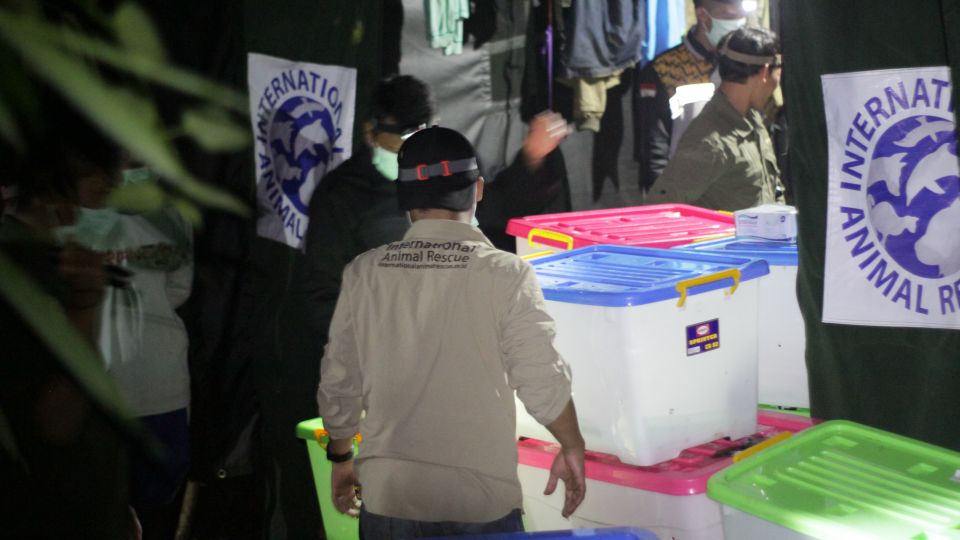
Our team in Indonesia has joined with the Majalengka Police, West Java and the West Java Centre for Natural Resources Conservation (BBKSDA) to release 65 Javan slow lorises back into the wild.
They were among 79 of the Critically Endangered primates rescued from poachers planning to sell them illegally. The police had been alerted to the illegal activity of the two men by the local community.
The release took place on 20 January in two locations in West Java - Masigit-Kareumbi Conservation Forest and Mt Tampomas, Sumedang.

Thirty-four of the lorises were released on Mt Tampomas and 31 at Masigit-Kareumbi. Majalengka Police Chief, AKBP Mariyono, explained that, of the 79 slow lorises that were rescued, 11 were taken to IAR’s Primate Rehabilitation Centre in Bogor, West Java, for intensive care. Three other lorises had sadly died after they were confiscated.
Mariyono confirmed that not only must those who hunt or trade in protected species be punished, but also those found in possession of them. The relevant legislation carries the penalty of a five year prison sentence and a maximum fine of IDR 100 million ($7,000)
He added: “We take any activity relating to the hunting and trading in protected species like the slow loris extremely seriously. Anyone in possession of any protected wildlife should hand it over immediately to the BKSDA or other appropriate institution.”

Memen Suparman, Head of the BBKSDA in West Java, explained that the reintroduction programme in Masigit-Kareumbi Forest and Mt Tampomas is part of an ongoing effort to support the ecological processes in the region and to maintain and increase the dwindling wild loris population.
“These two regions are known to contain one of the most important natural habitats in the region for Javan slow lorises,” said Memen. He added that the choice of release location was based on the results of habitat surveys and studies carried out by the West Java Centre for Natural Resources Conservation with IAR Indonesia.
“The main criteria that must be met for release locations for slow lorises include regional security, availability of food and shade, carrying capacity of the habitat and a low threat of predators,” he explained. He added that he hoped the released lorises would thrive and breed in their new home.

The slow lorises were rescued by the Majalengka Regional Police Criminal Investigation Unit (Satreskrim) from two hunters in the Catayem Hamlet, Cibodas Village, Majalengka Regency, West Java, on Wednesday, 9 January 2019. The 79 lorises were confiscated from the perpetrators and handed to the BBKSDA for medical treatment and care.
Imam Arifin, IAR Indonesia veterinarian, explained that, based on the results of the medical examination conducted post-confiscation, the rescued lorises were suffering from a number of physical and psychological problems. These included the effects of stress, dehydration, poor nutrition and trauma injuries caused by being kept for too long in small dirty boxes.
“The lorises have received treatment to improve their condition and restore them to health. Thankfully, because they had been caught from the wild but had not yet fallen into the hands of illegal traders, they had suffered no lasting damage and, after appropriate care, were ready for release back into their natural habitat, ” Imam concluded.

